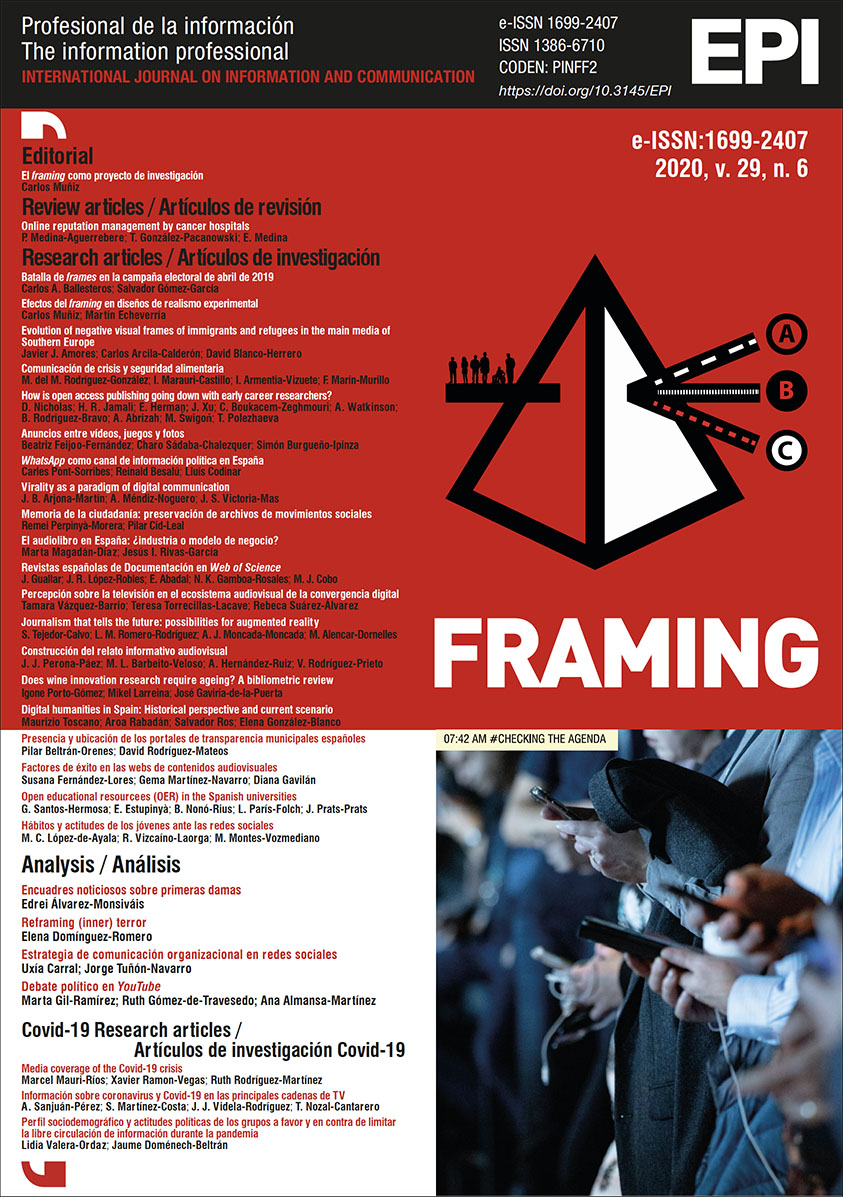Political debate on YouTube: revitalization or degradation of democratic deliberation?
DOI:
https://doi.org/10.3145/epi.2020.nov.38Palabras clave:
Social networks, Political communication, Ideology, Citizenship, Digital debate, YouTube, Public sphere, Electronic discourse, Foul language, Digital democracyResumen
It seems to be an established fact that social media multiplies the possibilities for civil society to express its points of view and intervene in the debate about matters of public interest. However, this greater social participation in political discourse through such platforms does not always translate into an improvement in the quality of democratic deliberation. The aim of this research is to examine the characteristics of comments and conversations on YouTube in a pre-election period to determine whether such discursive interaction contributes to strengthening the democratic system or if, on the contrary, is detrimental to it. Adopting a quantitative-qualitative approach, content analysis and critical discourse analysis are combined to examine 471 comments collected from the most viewed videos on YouTube in the month before the Andalusian elections held on 2 December 2018. Various aspects are considered, including the theme and typology of opinions, the use of foul language, and the modes that the conversation adopts. The results indicate a social discourse in which the exchange of opposing positions prevails, including comments with a strong emotional burden that tend to attack or criticize the ideology of the protagonists in the videos, and where rudeness is present (although there are exceptions), mainly as personal insults among the participants. The characteristics of the conversation taking place on this online video platform in the pre-election period do not meet the minimum standards for argumentation and civil behavior in digital political debate, thus far from contributing to an improvement in the quality of deliberative processes, it is deteriorated.
Descargas
Descargas
Publicado
Cómo citar
Número
Sección
Licencia
Condiciones de difusión de los artículos una vez son publicados
Los autores pueden publicitar libremente sus artículos en webs, redes sociales y repositorios
Deberán respetarse sin embargo, las siguientes condiciones:
- Solo deberá hacerse pública la versión editorial. Rogamos que no se publiquen preprints, postprints o pruebas de imprenta.
- Junto con esa copia ha de incluirse una mención específica de la publicación en la que ha aparecido el texto, añadiendo además un enlace clicable a la URL: http://revista.profesionaldelainformacion.com
La revista Profesional de la información ofrece los artículos en acceso abierto con una licencia Creative Commons BY.




